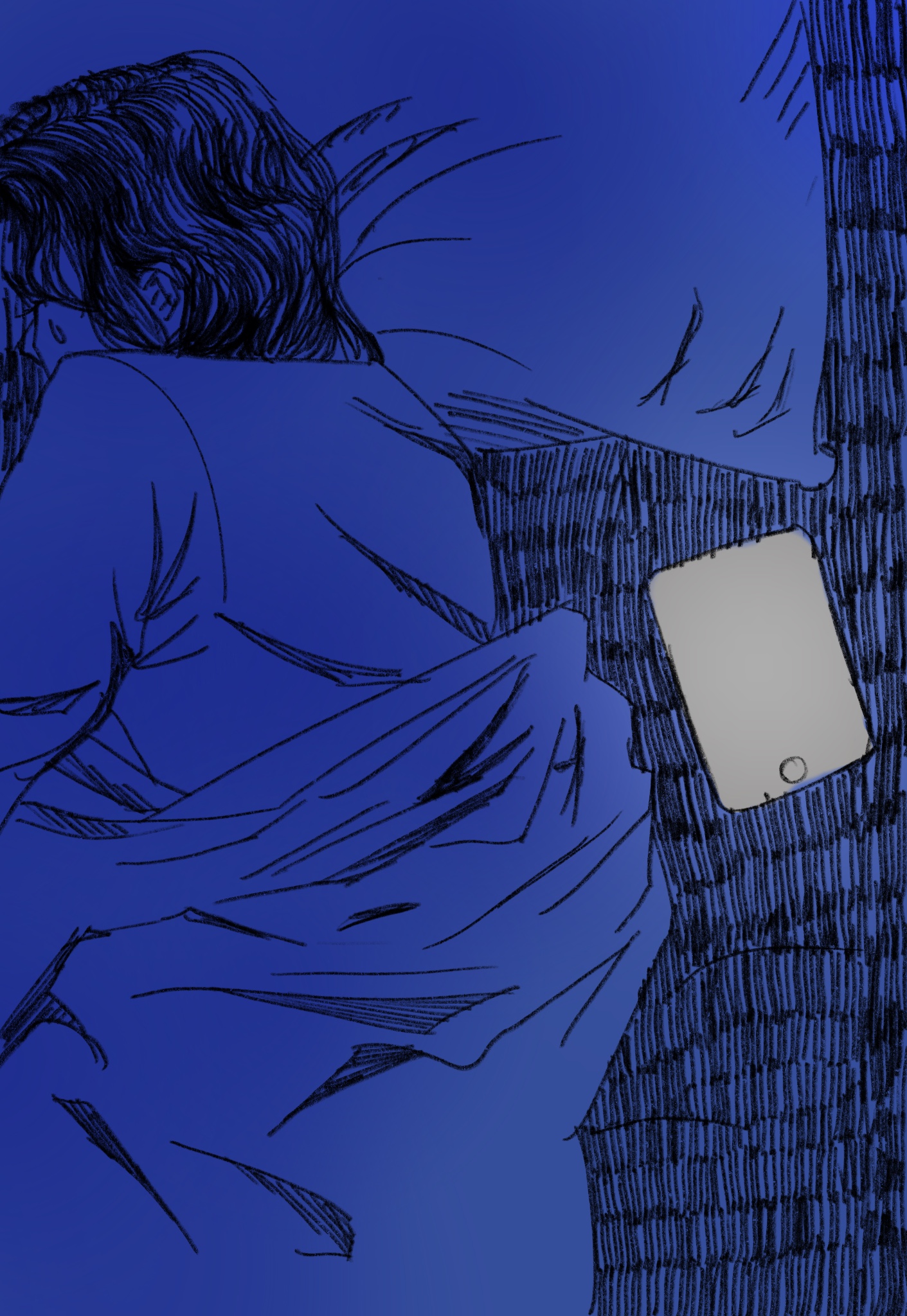Doom Scrolling through the Darkness

Illustration by Haven Jovel Morales
Throughout the pandemic, there have been way too many instances where I’ve found myself endlessly scrolling through the disheartening cycles of COVID-19 news. This phenomenon, often referred to as doom scrolling, became more and more common during the pandemic, as staying caught up on news about the virus became essential to our safety. While staying informed is important, constantly being reminded of the tragic events happening around us when we log onto social media can have a negative effect on our mental health.
First of all, it’s important to note doom scrolling is not our fault. Gathering information is part of our brain’s natural response to stressful situations. According to clinical psychologist Dr. Amelia Aldeo, our minds are set up to look for potential danger and “the more time we spend scrolling, the more we find those dangers, [and] the more anxious we get,” which leads to more time spent looking “for information to confirm this anxiety.” This, in combination with the way that social media platforms are designed to keep us engaged for as long as possible, makes it difficult not to doom scroll, as we lose track of time scrolling through our phones.
Doom scrolling can be harmful because it can lead to heightened feelings of stress, anxiety, and helplessness. It can also cause stress-related physical symptoms such as headaches, muscle tension, fatigue, or trouble falling asleep. On top of this, falling into a news rabbit hole in the middle of a school day and absorbing heavy information in the process can make it extremely difficult to return to work and keep focus.
When I noticed that doom scrolling was beginning to negatively affect me, I started looking for ways to consume news mindfully, instead of helplessly.
Here are some of the tips I found to consume news mindfully:
- Check in with yourself. When looking for information about COVID-19 or anything else that could be seen as stressful, periodically ask yourself if you have found the information you were initially looking for. If the answer is yes, stop looking! Be careful not to fall down the rabbit hole!
- Set Limits. Delineate specific times during the day to consume news. Set a timer for how long you will read the news for.
- Curate your social media feed. Oftentimes, social media platforms such as Instagram or Twitter act as news outlets. Although these platforms can be helpful ways to stay informed, sometimes we can see negative news when we aren’t ready for it or consume opinions instead of reliable news sources. Mindfully following sources who provide reliable information and making sure to balance your social media feed with low-stress accounts that make you feel good can be very important.
- Set yourself up for success. Identify the times of day that you are more likely to spend time doom scrolling. For example, if you are prone to doom scrolling before going to sleep, try to set your phone down before getting into bed.
- Consume different types of media. Nowadays, news sources are focused on getting information out as soon as possible. When speed is a priority, some information may be incomplete or inaccurate, as it takes time to investigate the full scope of a situation. Consuming “just in” news sources may be overwhelming; looking towards “slower” sources such as newspapers or news magazines may be a way to avoid the initial panic of an event and read news without falling into doom scrolling.
As the pandemic continues, shifting our focus from doom scrolling to mindful consumption of news is an important way that we can protect our mental and physical health. Identifying areas where we can set boundaries within our own lives has never been more important, as we continue to confront new challenges.








Leave a Reply
Want to join the discussion?Feel free to contribute!